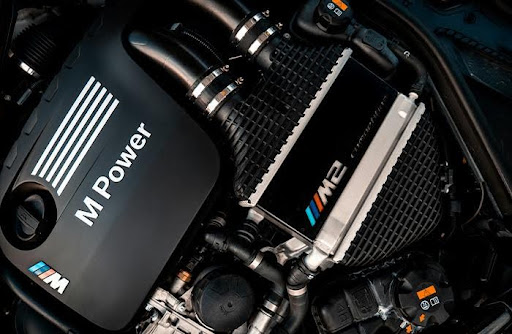When considering the purchase of a BMW reconditioned engine, it’s essential to be thorough in your approach. These engines offer a cost-effective alternative to new ones but come with considerations unique to their condition and past use. Understanding what to look for will ensure you make a smart investment.
Reconditioned engines, especially for high-performance vehicles like BMWs, undergo extensive refurbishing processes. It’s crucial to familiarise yourself with these processes, as they greatly affect engine quality. The right knowledge will guide you in choosing an engine that meets both your needs and budget.
When buying a reconditioned BMW engine, you can consider things like:
Compatibility
When considering selecting a reconditioned BMW engine, the first aspect to check is its compatibility with the vehicle. Not all engines are fitted to all models, and hence it is very important to verify the exact type of engine that is required by BMW. This information is available in your vehicle’s manual or from an advisor.
You should also take into consideration the integration of the engine with other car systems. Mismatch can lead to extra costs and complications. Seek professional advice that will help you assess compatibility objectively.
Finally, ponder the exercise of installation: There are reconditioned engines that may need special tools or installations in their fixation. Be well-prepared for such extra steps or consider hiring a professional for the job.
Return Policy
Before buying the remanufactured BMW engine from any supplier, finalize the deal only after understanding the return policy of the supplier. A clear, transparent return policy is an integral part of covering you in the event the engine is not up to your expectations or worse, it arrives defective.
Find out the time frame within which you can make returns. Long periods will give you more time to test the engine in a variety of conditions and verify its reliability. Short return periods may not provide enough time to fully assess the engine’s performance.
He would also verify the conditions of the returns accepted because most of the suppliers might accept it for only some kind of defects or malfunction. It should be clear what is covered so that there are no surprises when the engine is returned.
Shipping and Handling
Have an idea of the shipping and handling involved in your reconditioned BMW engine. Engines are heavy and all handling regarding shipping should be done delicately to avoid breakage. Choose a supplier who is using reputable shipping services with experience in handling heavy auto parts.
Any queries about packaging standards or the cost of insurance towards shipping are included, and the same will have to be paid for separately. The engine has to be sufficiently packed to protect it well from any transit damage.
Lastly, understand the delivery timelines. Knowing the times within which one should expect their engine will enable an individual to plan for the installation and any necessary preparations without significant delays.
Also, these are other things that you need to consider when buying a used engine:
Research and Understand Your Need
The first step in most cases includes research and understanding of your precise need before purchasing a reconditioned BMW engine. This may call for a review of driving habits and what one may expect from his or her engine. Most engines have a similar level of performance and fuel efficiency.
Know the exact model of engine that can fit in your BMW. You have to be satisfied that the engine will work best in your car. Research could help to establish which reconditioned engines are more reliable and better fit for your car.
Think also of your budget. There are reconditioned engines on the market sold at different prices according to age, mileage, and scope of reconditioning. Make sure to set a realistic budget that shows what you need and, at the same time, allows for some headroom in terms of additional costs like installation or future repairs.
Verify the Engine’s History
You must verify the history of the reconditioned engine which you intend to buy. Well-documented history can tell you about the past use and repairs that might have been taken up for the engine. Look for engines with a clear maintenance record pointing to regular servicing.
Ask about the details of the reconditioning process, if at all possible, who has done it, and if nothing else, at least question the replacement parts in such an engine. Good suppliers will never avoid such a kind of question.
Last but not least, thoroughly check if the engine was involved in any serious accident. Engines from seriously damaged cars or trucks may have latent faults that influence the durability and performance of the component in question.
Consider the Engine’s Age and Mileage
The other thing that would determine the choice of the reconditioned engine would be its age and miles. Generally, the best reconditioned engines would be relatively new ones with less mileage because they are likely to have been subjected to minimal wearing. However, even the old engines could be a pretty good choice if proper care has been taken in maintenance and reconditioning.
Look at the mileage compared to the age of the engine. An older one with shockingly low mileage may show that it wasn’t used regularly, which is almost as bad as another one’s high mileage. The same goes for age and mileage, and a balanced view will point you toward making a sensible choice.
The expected life of the engine is also something to consider. Reconditioned engines can very well serve for many years, but an idea of the possible lifespan can help a lot in deciding about it.
Check for Compatibility
Revisit compatibility, for it is a very critical part of the purchase of the reconditioned engine. Ensuring and rechecking the compatibility of the engine with your model of BMW and its year is necessary so that it fits your car perfectly and the performance, as a result, stays to your satisfaction. Wrong compatibility can carry great issues in the future.
Seek a mechanic or expert to make sure that all sensors and contacts necessary, on the other hand, work with the new motor. They can provide valuable insights into potential modifications needed to ensure compatibility.
Read the Terms of the Warranty and Return Policy
One factor of utmost importance: is understanding the warranty that comes with your reconditioned BMW engine. A warranty will afford you some peace of mind where the coverage of potential problems is concerned. Check what this warranty includes, the length of it and for what components and issues.
Read the warranty terms. It will indicate that you have to install the engine from a professional to be considered valid. Partial warranties may only involve certain repair types or replacements.
Find a Reliable Dealer
The most critical aspect of this equation is finding an equally good and reliable dealer to source your reconditioned BMW engine from. Look out for outstanding reviews and a strong reputation in the industry, as the former is more likely to indicate quality products and the latter reliable customer service.
Look out for the dealer’s specialization in BMW engines. A specialized dealer is most likely going to enjoy good access to high-quality reconditioned engines, besides being more alert to problems that are peculiar to BMW engines.
Thoroughly Inspect External Components
If you look at a reconditioned engine, take a close look at its external components. Ensure there is no form of wear or damage to the belts, hoses, and gaskets. The mentioned components have to be in perfect condition, and you will not experience problems as they run.
Engine Mount and External Fittings: Ensure they are both secure and not damaged to eliminate problems such as vibration and misalignment in service.
Consider Fluid Analysis
It might make sense to have a fluid analysis done on the reconditioned engine. This analysis checks whether there are metal particles or contaminants within the oil, suggesting internal damage or wear.
Ask the dealer if there’s not one available for review to have a fluid analysis done. If no one is to be reviewed, perhaps you may want to consider having one done before finalizing your purchase.
That way, a person would be in a position to understand the outcome of the fluid analysis test and avoid buying such an engine that has potential internal problems that may cause future repairs or failures.
Consider Professional Inspection Services
Consider seeking the help of professional inspection services to assess the reconditioned BMW engine. The assessment, its condition, and the possible problems relating to the reconditioned BMW engine can be carried out by a professional mechanic through performing necessary diagnostic tests.
That said, an inspection will ensure that the engine is, in fact, in good order and, therefore, worth the investment. It will also be able to note any hidden issues which may not be apparent with a basic external check.
Negotiate and Document the Agreement
Once you have decided on a reconditioned BMW engine, negotiate the terms of the purchase. Discuss the price, warranty terms, and any guarantees on performance. Effective negotiation can lead to better terms and added value in your purchase.
Ensure all agreements and terms are documented in writing. A written agreement provides a clear reference for both parties and helps resolve any disputes about the terms of the sale.
Having a detailed record of the purchase, warranty, and any commitments from the dealer is essential for protecting your investment and ensuring satisfaction with your reconditioned BMW engine.
Some Common FAQs
- What is a reconditioned BMW engine?
A reconditioned BMW engine is a previously used engine that has been restored to full functionality through repairing or replacing damaged components. - How do I check if a reconditioned engine is compatible with my BMW?
Verify compatibility by checking the engine model against your BMW’s specifications in the owner’s manual or consult with a specialist. - What should I look for in a return policy when buying a reconditioned BMW engine?
Look for a clear return policy that covers any faults or misrepresentations, with a reasonable period to test the engine. - Why is it important to verify the history of a reconditioned engine?
Verifying the history helps assess the engine’s condition and reliability, indicating how well it has been maintained. - Can I install a reconditioned BMW engine myself?
While installation can be done yourself if you have the necessary skills and tools, professional installation is recommended to ensure it’s done correctly and to maintain warranty validity.
By considering these factors carefully, you can make a well-informed decision when buying a reconditioned BMW engine. This approach will help ensure that the engine you select meets your needs, offers reliable performance, and provides good value for money.


